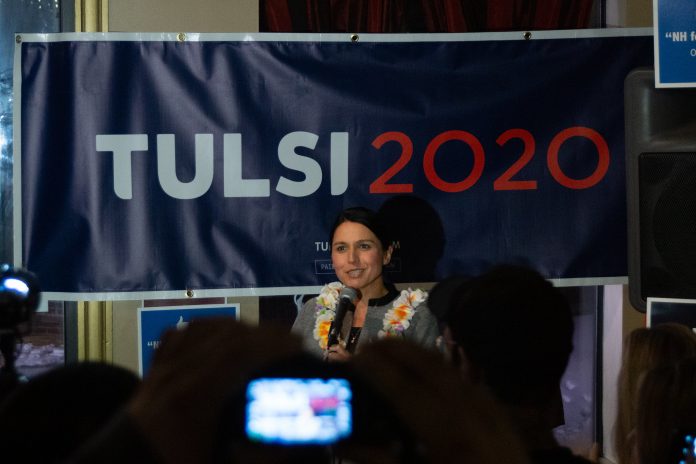The Trump presidency has been like a tornado running through American political life, destroying institutions and mores, undermining rule of law and shuffling the partisan deck. The Republican Party, which for generations was the party that urged America to respect law enforcement has turned on the CIA and FBI seeing them as agents of a deep state conspiracy. Similarly, the same Republican Party that lectured us for decades about personal morality and conduct has now dedicated itself to defending a twice divorced sexual predator who if he had not been born to wealth would likely have spent his life bouncing between the criminal justice and mental health systems.
The Democratic Party has changed as well. It has moved to the left on domestic issues such as health care and questions of wealth inequality, but progressives have rallied around the same law enforcement agencies that spied upon and harassed the left for most of the twentieth century. Additionally, in large part because of discontent over both Russian intervention in the 2016 election and the refusal of the Republican leadership to address, or even recognize, this problem, Democrats are now much more hawkish on Russia. Many Democratic activists not only see how Donald Trump’s policies, not least his recent decision to withdraw troops from northern Syria, help Russia, but they view Russia as a brutal and corrupt dictatorship whose nefarious influence reaches deep into American politics. Russia is deeply corrupt and far from being democratic, but it is a much freer and open society than, for example China. Moreover, while the extent of the connections between the Republican Party and Moscow are still being discovered, Russia has nothing to do with the racism, avarice and hubris in American life that helped lay the foundation for Trump’s ascendancy.
By 2016, most Americans had realized that the foreign policy establishment was no longer serving them well
More significantly, the Trump presidency has pushed many Democrats not so much to the right, but towards supporting the foreign policy establishment of the last half century or so. While the trauma of the Trump presidency has made any comfortable alternative seem better, it does not follow that returning to the foreign policy status quo is the best approach. There is a reason why Trump’s promises to extricate America from foreign wars and his “America First” policy, despite, and for some because of, its ugly anti-Semitic pedigree, resonated so much with the electorate. By 2016, most Americans had realized that the foreign policy establishment was no longer serving them well. Accordingly, while structures and institutions of American foreign policy need to be restored, returning to policy choices of that establishment is a questionable electoral and governing approach for any Democrat.
Because of Trump’s radically disruptive, but also dangerous and foolish, foreign policy, it is too easy to overlook the reality that the foreign policy establishment has also made enormous mistakes, albeit with better decorum and more conventional reasoning and approaches. Before we repeat lines about how those systems worked, we should remember that the Iraq War, the war in Vietnam, interventions in numerous central American countries and support for authoritarian regimes from Capetown to Santiago were provided to us by that foreign policy establishment. Similarly, while NATO has played a valuable role in some respects, the notion that because of NATO we managed to keep peace in Europe for three quarters of a century is a bit of an overstatement that, for example, would come as news to people from the countries that were once Yugoslavia.
We saw this dynamic in the recent debate when almost all of the candidates rushed to the same criticism of Trump’s withdrawal of troops from Syria. That was a terrible decision by Trump leading to cruel abandonment of the Kurds that will only get worse for a people who stood alongside the US for two decades. The message Trump sent to the world was that our allies, even when they fight alongside us, can no longer depend on us. Nonetheless, the question of what the alternatives are to endless war for endless peace are should not be ignored.
The message Trump sent to the world was that our allies, even when they fight alongside us, can no longer depend on us
The only person who sought to address this during the recent debate among Democratic candidates for president was Tulsi Gabbard who referred to US involvement in Syria as a “regime change war” and urged an end to those kind of polices and wars. Gabbard’s willingness to engage with the far right, accusations that the DNC is rigging the primary and previous efforts to downplay the role that Russia played the US election of 2016 has led many, including most recently Hillary Clinton, to accuse Gabbard of being too close to Russia. That allegation may or may not be true, but the notion that endless war for endless peace is not working is not one that should be sloughed off so quickly.
For many Democrats, the notion that Gabbard may have some relationship with Russia is so off-putting that the rest of her message is shut out. Unfortunately, this forces many Democratic voters and candidates into what appears to be a choice of Trump (and perhaps Putin) on one side and the foreign policy establishment-with all the tropes and myths that go along with that-on the other. There is no reason this has to be the case. Although Trump has made it more difficult, it is still possible, and in many respects essential, to craft a foreign policy that breaks with the assumptions and policies of the bipartisan interventionist consensus while having nothing to do with Russia.
www.lincolnmitchell.com
Follow me on Twitter at http://twitter.com/LincolnMitchell

